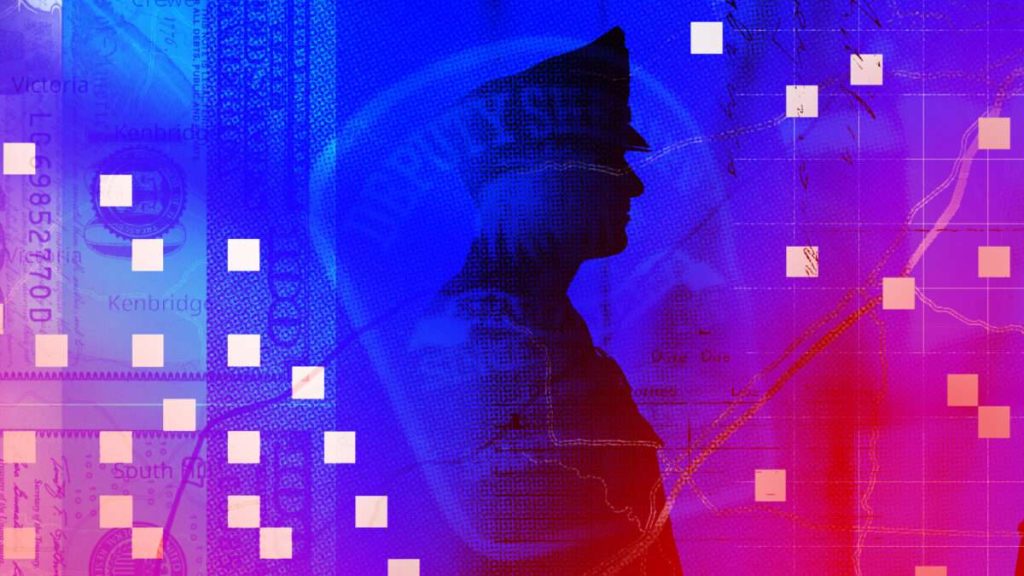South Carolina sheriff’s deputies faced backlash when they boarded a Shaw University charter bus in October 2022 and started rummaging through students’ personal belongings without a warrant. The historically black school filed a complaint with the Department of Justice. Now, newly released public records show the police intrusion was not an isolated incident.
Officers routinely pulled over and searched commercial buses during Operation Rolling Thunder in 2022, in Spartanburg County, South Carolina. Officials claim they do not know the precise number of bus searches that year, but a tally sheet shows 45 commercial motor vehicle inspections during the five-day operation. This matches reports from Operation Rolling Thunder in 2023, when the county stopped 45 buses in just four days—more than 11 per day.
Only a handful of these people did anything wrong. Officers found drugs on 11 buses and identified only six suspects. Yet the police treated all bus riders like criminals, often forcing innocent people off buses and going through their luggage for 45 minutes or longer.
‘Used To This’
One bus driver transporting passengers from New York to Atlanta told officers he expects to face criminal treatment by police officers during his trips.
“(He) advised me that he was used to this and that it’s routine for him to get pulled over during his trips,” a Cherokee County deputy wrote in a report, included in 262 pages of records obtained by the Institute for Justice.
The reason for the selective enforcement is clear. Bus riders make soft targets for search and seizure. As a group, they tend to be lower-income. Reuters says a 12-hour bus ride “provides an insight into the lives of America’s poor.”
Once abuse occurs, bus passengers have little ability to call it out because they lack political clout. Unlike Spartanburg County Sheriff Chuck Wright, who called a news conference and cast suspicion on all bus riders during a 2022 news conference, the people he smeared rarely have a platform to respond.
Incidentally, many buses are also loaded with cash. Lower-income individuals are the most likely Americans to be “unbanked,” meaning no one in the household has a checking or savings account. They do business in cash, which they are more likely to carry while traveling.
Anatomy of a Bus Search
Public records from Operation Rolling Thunder reveal how these cash grabs work. Police wait on Interstate 85 for buses to approach and then invent reasons to conduct traffic stops. Officers pulled over one bus for driving 5 miles per hour over the speed limit.
More typically, officers accused bus drivers of lane violations, which can mean swerving slightly without crossing any lines. Officers can use dramatic language to juice up this allegation. One sheriff’s deputy told a Greyhound bus driver headed to Atlanta that he was “bouncing from side to side” within his lane.
Once the bus is pulled over, interdiction teams spring into action.
One officer asks the driver to step off the bus and open the undercarriage for a K-9 sniff. Another officer has the dog on a leash nearby, ready to go. Drivers invariably comply, and the dogs typically alert for something suspicious. Officers then use this evidence as probable cause to open suitcases.
If officers find contraband, they use this as probable cause to enter the cabin. If they do not find contraband, they get consent from the driver and search the cabin anyway.
Officers sometimes clear the cabin prior to these sweeps, forcing everyone onto the highway shoulder. “At this point all passengers were asked to exit the vehicle,” a Gaffney County deputy wrote in one report. The command is phrased like a request, but instructions like these carry an implied threat of escalation if anyone refuses.
During Operation Rolling Thunder, records show nobody refused. The outcome was predetermined.
The post Inside the Unchecked Bus Searches by South Carolina Police appeared first on Reason.com.







